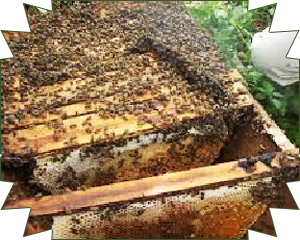 Bee farming is one of the main activity of CISEGD aimed at empowering people to live in harmony with nature as well as conserves the environment. We therefore empower people through apiculture trainings and nature conservation programs. CISEGD believe that planting a tree will save a bee and more trees planted bring more honey, more money and more happiness. With limited resources we have trained 5 groups on bee farming and the construction of bee hives using local available materials.
Bee farming is one of the main activity of CISEGD aimed at empowering people to live in harmony with nature as well as conserves the environment. We therefore empower people through apiculture trainings and nature conservation programs. CISEGD believe that planting a tree will save a bee and more trees planted bring more honey, more money and more happiness. With limited resources we have trained 5 groups on bee farming and the construction of bee hives using local available materials.
CISEGD sensitizes the communities in which it works to shun the destructive practice of using bush fires when carrying out harvesting of honey from the wild, and actively encourages afforestation with emphasizes on melliferous plants. We also sensitize communities on the dangers of excessive use of pesticides that are harmful to bees and other wild pollinators. Bees and other pollinating insects play an essential role in ecosystems. A third of all our food that we eat depends on their pollination. A nation/world without pollinators would be devastating for food production.
Bees make more than honey – they are key to food production because they pollinate crops. Bees, and insects like butterflies, wasps, and flies all provide valuable pollination services. This beekeeping activity is to:
¶  Build the capacity of communities in modern bee farming techniques and in production of bee by-products;
Build the capacity of communities in modern bee farming techniques and in production of bee by-products;
¶ Train rural people on the practice of modern beekeeping and apiculture techniques to increase honey production;
¶ Solve the problems encountered by bee farmers with respect to hive transfer, colonization, colony division, harvesting, apiary development and management, decline in honeybee, processing of honey, hive equipment and hive by-products.
Working with communities on this activity will enhance biodiversity, ensure food security and reduce poverty among rural poor people and above all promote sustainable community development.

